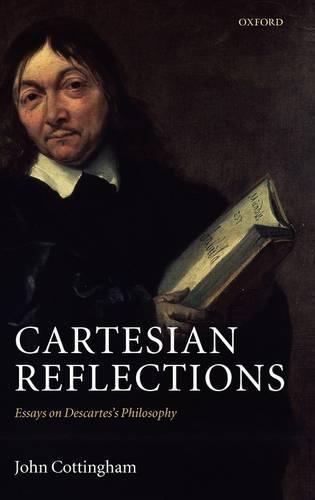Overview
John Cottingham explores central areas of Descartes's rich and wide-ranging philosophical system, including his accounts of thought and language, of freedom and action, of our relationship to the animal domain, and of human morality and the conduct of life. He also examines ways in which his philosophy has been misunderstood. The Cartesian mind-body dualism that is so often attacked is only a part of Descartes's account of what it is to be a thinking, sentient, human creature, and the way he makes the division between the mental and the physical is considerably more subtle, and philosophically more appealing, than is generally assumed. Although Descartes is often considered to be one of the heralds of our modern secular worldview, the 'new' philosophy which he launched retains many links with the ideas of his predecessors, not least in the all-pervasive role it assigns to God (something that is ignored or downplayed by many modern readers); and the character of the Cartesian outlook is multifaceted, sometimes anticipating Enlightenment ideas of human autonomy and independent scientific inquiry, but also sometimes harmonizing with more traditional notions of human nature as created to find fulfilment in harmony with its creator.
Full Product Details
Author: John Cottingham (University of Reading)
Publisher: Oxford University Press
Imprint: Oxford University Press
Dimensions:
Width: 16.30cm
, Height: 2.50cm
, Length: 24.20cm
Weight: 0.686kg
ISBN: 9780199226979
ISBN 10: 0199226970
Pages: 348
Publication Date: 11 September 2008
Audience:
College/higher education
,
Undergraduate
,
Postgraduate, Research & Scholarly
Format: Hardback
Publisher's Status: Active
Availability: To order

Stock availability from the supplier is unknown. We will order it for you and ship this item to you once it is received by us.
Reviews
nuanced and often instructive reflections both on controverisal Cartesian views that still challenge his commentators, and on their simplified canonical images that continue to haunt contemporary discussions... Taken together, they offer a stimulating picture both of Descarte's influential and often controversial views and of Cottingham's longstanding engagement with them. * Lilli Alanen, Notre Dame Philosophical Reviews27/08/09 * an admirable volume * Michael Moriarty, French Studies * It is one of the virtues of Cottinghams exemplary work that he can give us insight into a surprisingly overlooked way in which Descartes has set the agenda for all subsequent philosophy. * Michael Della Rocca, Metascience *
nuanced and often instructive reflections both on controverisal Cartesian views that still challenge his commentators, and on their simplified canonical images that continue to haunt contemporary discussions... Taken together, they offer a stimulating picture both of Descarte's influential and often controversial views and of Cottingham's longstanding engagement with them. * Lilli Alanen, Notre Dame Philosophical Reviews * an admirable volume * Michael Moriarty, French Studies * It is one of the virtues of Cottinghams exemplary work that he can give us insight into a surprisingly overlooked way in which Descartes has set the agenda for all subsequent philosophy. * Michael Della Rocca, Metascience *
It is one of the virtues of Cottinghams exemplary work that he can give us insight into a surprisingly overlooked way in which Descartes has set the agenda for all subsequent philosophy. * Michael Della Rocca, Metascience * an admirable volume * Michael Moriarty, French Studies * nuanced and often instructive reflections both on controverisal Cartesian views that still challenge his commentators, and on their simplified canonical images that continue to haunt contemporary discussions... Taken together, they offer a stimulating picture both of Descarte's influential and often controversial views and of Cottingham's longstanding engagement with them. * Lilli Alanen, Notre Dame Philosophical Reviews *
nuanced and often instructive reflections both on controverisal Cartesian views that still challenge his commentators, and on their simplified canonical images that continue to haunt contemporary discussions... Taken together, they offer a stimulating picture both of Descarte's influential and often controversial views and of Cottingham's longstanding engagement with them. Lilli Alanen, Notre Dame Philosophical Reviews
Author Information
John Cottingham is Professor of Philosophy at the University of Reading. His principal research interests are in early-modern philosophy (especially Descartes) and in the philosophy of life.



